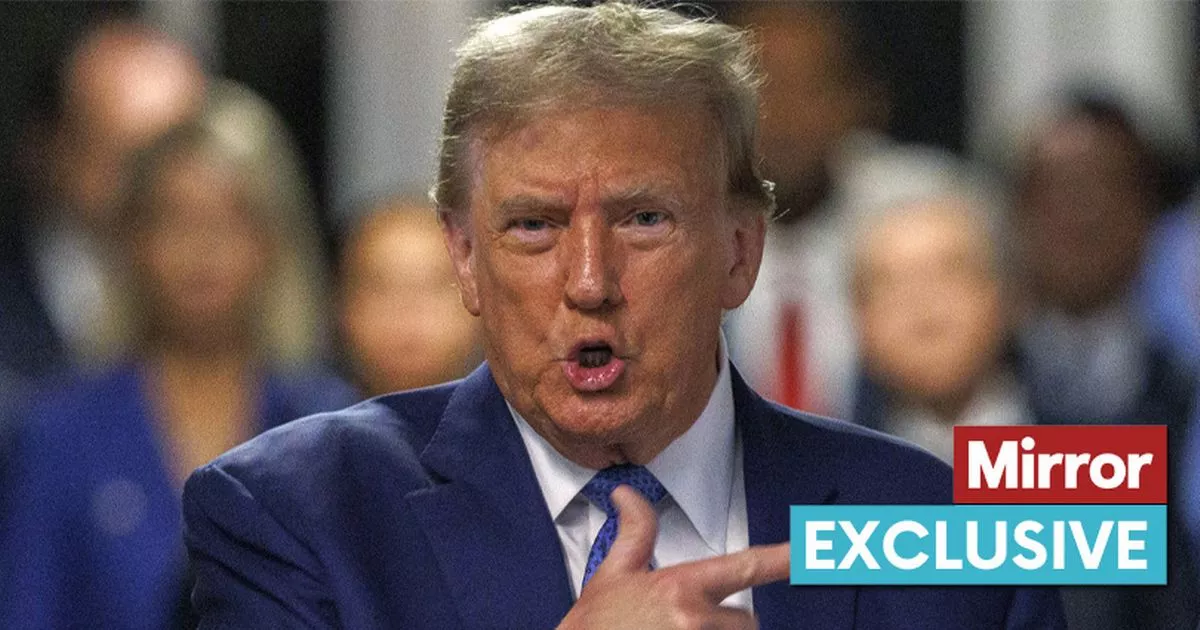

Donald Trump‘s behaviour during his hush money trial may have left the jury “very offended”, an expert has warned.
This comes as the prosecution and defence present their closing arguments and the jury is set to begin their deliberations. The trial has gripped the US as it could see the first time a former president has been found guilty over criminal charges.
Judge Merchan said he expects closings to take a full day, maybe longer. After that, he said, he’ll instruct jurors in the law for about an hour before sending them to deliberate.
He said that could happen as early as next Wednesday. Speaking to the Mirror, Gregory Germain, Professor of Law at Syracuse University explained what could happen next in the trial and how Trump’s actions throughout could affect the jury’s decisions.
READ MORE: Stormy Daniels receiving ‘death threats’ amid Donald Trump hush money case
(
Getty Images)
Juan Merchan found Trump repeatedly violated limited gag orders imposed on the case after the Republican presidential frontrunner spoke out about trial witnesses and jurors. Professor Germain said: “I doubt that there are any Trump supporters on the jury, and I think they are likely very offended by Trump’s conduct in and out of court, and with the unethical behaviour.
“So, even though only one juror is necessary for Trump to obtain a mistrial, and even though it’s a very flawed case, I predict that the jury will convict him.” Despite this, the professor did highlight possible flaws in the prosecution’s case.
He said: “I think the DA and the Judge are fully invested in obtaining a conviction. I think the judge will gloss over the legal issues in the jury instructions to allow a conviction by defining the legal issue around the propriety of paying hush money rather than the legality of paying hush money and how that relates to the documents charges.”
(
Getty Images)
Assistant District Attorney Joshua Steinglass is slated to give the prosecution’s closing and is likely to highlight portions of the evidence and testimony that it sees as supporting its case. The defence is likely to remind jurors of the inconsistencies and credibility issues it sees in many of the prosecution’s key witnesses, while also underscoring Trump’s insistence that he is innocent.
Since the prosecution has the burden of proof, it will deliver its summation last — the reverse order from opening statements where the prosecution went first. Giving his opinion Professor Germain also said: “I have been very critical of the DA for bringing such a flawed case, and of the judge for pushing the case forward in such a confusing way, given all of the legal problems with the claims in the indictment.
“I don’t think the DA proved that Trump committed fraud and a separate crime by facilitating the recording of the business records to show attorney fees rather than reimbursing hush money payments.”
(
Getty Images)
He added: “Ultimately, I think the verdict will be reversed on appeal. If the judge sentences Trump to prison, then the courts will intervene quickly. If Trump isn’t sentenced to prison, the appeal will take its sweet time and be reversed after the election.”
Another political expert reinforced the idea the political situation of the high-profile trial could weigh on the jury as they make their decisions. Grant Reeher, director of the Campbell Public Affairs Institute and a professor of political science at Syracuse University, said: “I imagine the experience of being in the same room with Donald Trump for extended periods of time, and taking part in a super high-profile case. Knowing that the country and the world will be scrutinising the outcome must have some effect. Something like the O. J. Simpson case, where it seemed that the jurors were making a political statement about race and the criminal justice system, versus the facts of that specific case.”
